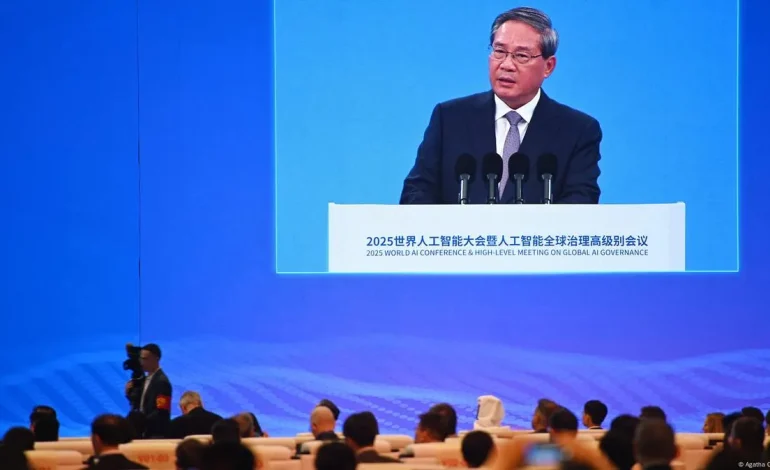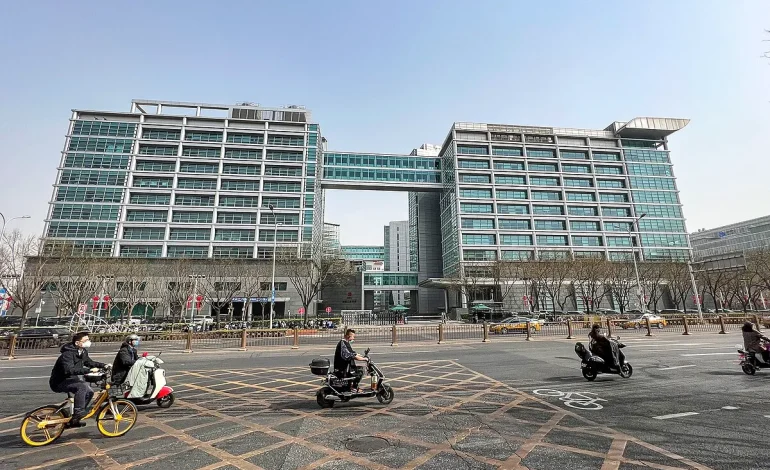
Introduction
China has proposed the creation of a global governance body for artificial intelligence, aimed at ensuring that no single country or corporation monopolizes the development and use of advanced AI technologies. The proposal, presented at a recent international forum, underscores Beijing’s growing role in shaping the global conversation on AI ethics, security, and equitable access.
The proposal in detail
Chinese officials outlined their vision for a multilateral organization that would oversee AI standards, data sharing, and safety protocols. The body would be designed to function like existing global institutions in areas such as trade or nuclear energy, where international cooperation is critical to managing risks. According to policymakers, the goal is to avoid a scenario where advanced AI is concentrated in a few economies while the rest of the world is left behind.
The proposed governance framework includes joint research centers, collaborative regulatory mechanisms, and agreements on responsible use. China emphasized that such a body should reflect diverse perspectives, particularly from developing countries, which often lack the resources to build AI infrastructure on their own.
Why China is pushing for this
China’s call for global governance comes amid intensifying competition with the United States and Europe in AI development. By championing an inclusive model, Beijing aims to position itself as a responsible leader while countering perceptions that its domestic AI policies are restrictive. The proposal also dovetails with China’s broader foreign policy agenda of promoting multilateralism and opposing technological hegemony.
Officials argue that international cooperation is the only way to manage the potential risks of AI, such as misinformation, job displacement, and national security threats. Without a global body, they warn, fragmented regulations could lead to inefficiencies and conflicts.
Reaction from the global community
The proposal has sparked debate among policymakers and industry leaders. Supporters in developing countries welcomed China’s call for inclusivity, noting that smaller economies often struggle to influence global tech standards. Some see the initiative as a chance to democratize AI governance and prevent dominance by a few Western firms.
However, critics argue that China’s domestic record on data control and censorship undermines its credibility in leading such an effort. Western governments are cautious, questioning whether a governance body proposed by Beijing would truly operate on transparent and neutral principles.
AI as a geopolitical issue
The governance debate reflects the broader geopolitics of technology. The United States has emphasized innovation through private sector leadership, while Europe has focused on regulation and human rights. China’s approach seeks to combine state-led coordination with international outreach. By proposing a global body, China is attempting to shape rules that align with its interests while presenting itself as a cooperative partner.
This positioning also resonates with the Global South, where many countries view AI as both an opportunity and a challenge. A governance body that provides resources and access could strengthen China’s ties with these nations.
Implications for the AI industry
If realized, a global governance body could establish common standards for data privacy, model transparency, and cross-border collaboration. For tech companies, this might mean new compliance obligations but also greater clarity in navigating international markets.
Chinese firms such as Alibaba, Tencent, and Baidu could benefit from a more level playing field if global rules reduce barriers to entry in foreign markets. At the same time, US and European firms would face a more structured environment that limits unilateral control.
Challenges to implementation
Creating such a body will not be easy. Major powers are unlikely to surrender control over their AI strategies to an international organization. Differing political systems, economic priorities, and cultural values complicate the establishment of universal standards. Even within existing frameworks like the United Nations, consensus on technology governance has been slow to achieve.
Moreover, there is the question of enforcement. Without binding mechanisms, a governance body could become symbolic rather than effective. Ensuring compliance would require strong political will and incentives for participation.
Domestic context in China
The proposal also reflects domestic pressures. China has invested heavily in AI but faces constraints from US export restrictions on advanced chips. By leading the governance conversation, Beijing seeks to offset these challenges by influencing the global regulatory environment. Domestically, the government continues to regulate AI tightly, requiring companies to register generative AI products and comply with content standards. This dual approach of strict domestic control and international outreach is a hallmark of China’s technology strategy.
Conclusion
China’s proposal for a global AI governance body represents an attempt to shape the rules of emerging technology at the international level. While the idea faces skepticism from some governments, it signals Beijing’s determination to move beyond being just a participant in the AI race to becoming an agenda setter. The success of this initiative will depend on whether China can build trust with other nations and whether global powers are willing to compromise in the interest of shared governance.





